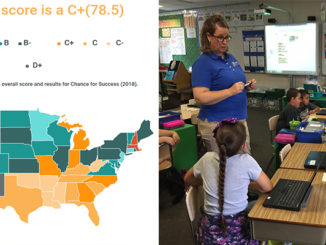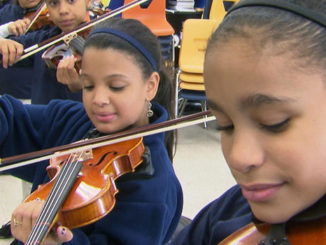
Public education funding and property taxes are hot topics in Austin this spring. As lawmakers debate reforms, they should first and foremost take into account the opinions of the Texas public.
The University of Houston Hobby School of Public Affairs surveyed a representative sample of Texas registered voters on school finance and taxes and found that while Texans don’t like higher taxes, they want educating future generations to be a higher priority. And they have ideas about where the money should come from.
We found a substantial majority of Texas voters:
Don’t think Texas is doing a good job of providing the constitutionally mandated efficient system of public schools.
Believe the state should pay a larger share of public school funding.
Feel property taxes are high.
Favor stringent revenue caps for local taxing entities.
Most don’t support raising the state sales tax, a possibility promoted this past week by top state leaders. But they support a half dozen alternative ways to raise money for public education and make up for revenue lost to de facto property tax cuts, including more heavily taxing alcohol and cigarettes and legalizing and taxing casino gambling and marijuana for recreational use.
A majority of voters don’t think the government in Austin is doing a good job providing a quality education for our children. Fewer than one in three say the state is doing a very good (8%) or good (25%) job, while 38% categorize the state’s performance as average and 29% as poor or very poor.
An overwhelming majority of Texans believe the state should provide a higher share of public school funding. More than four out of five (82%) want the state to provide 50% or more of funding for public schools, as was the case 30 years ago. Just 7% say the state should maintain or lower its current share (36%) of funding.
Two out of three (68%) believe property taxes are high; only 5% feel they are low. It is thus unsurprising that more than three out of four support legislation to cap the revenue school districts, cities, counties and other jurisdictions can collect from property taxes, at either 2.5% (78% support) or 5% (77% support).
But voters recognize that increasing state funding while capping revenue from local property taxes means resources to fund education have to come from somewhere.
The most popular option for increasing revenue is closing appraisal legislation loopholes that allow large corporations to avoid paying assessments based on the fair market value of their property. Three out of four Texans support that; just 12% oppose.
Most of the other revenue enhancement mechanisms with broad support are “sin taxes.” Substantial majorities support raising existing taxes: 68% and 53% respectively support increasing taxes on cigarettes and other tobacco products and on beer, wine and other alcohol. These increases are opposed by 18% and 27% respectively.
A large majority favor legalizing and then taxing activities that are presently illegal. Three out of five Texans (62%) support the legalization and taxing of casino gambling, a reform opposed by 19%. A similar proportion (62%) favors legalizing and taxing the recreational sale of marijuana, while 28% are opposed.
More than half (56%) support raising state taxes on oil and natural gas extraction, known as severance taxes, to return the rules of the game to those in force prior to reforms adopted in the 1990s in reaction to slumping oil prices.
But Texas is still Texas. Three-fourths of voters reject a state income tax, and about two-thirds reject the idea of adding a 1% sales tax on groceries.
Texas political leaders last week floated the idea of increasing the state sales tax by $0.01. We asked about support for a half-cent state sales tax increase, from $0.06.25 per dollar to $0.06.75, and found 56% oppose, while 25% support the idea.
Texans want both more funding for public schools and lower property tax bills. They support a variety of ways to raise revenue for public education, from closing appraisal loopholes to adopting “sin” taxes. While the state’s legacy of low taxation endures, its pragmatism in making things work also persists. In this case, voters acknowledge that an educated workforce is ever more critical to the state’s — and their own — well-being.
The bottom line? Keep taxes low, but spend more on the future of Texas.
Cross, Granato and Pinto are senior director, executive director and Center for Public Policy director at the University of Houston Hobby School of Public Affairs. Jones is a Hobby School research associate and a fellow at Rice University’s Baker Institute for Public Policy.



